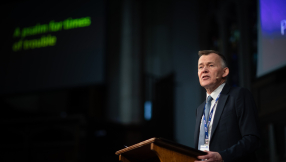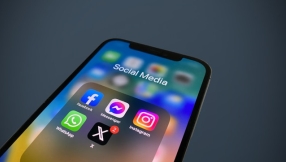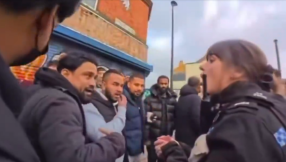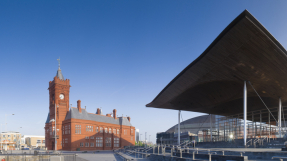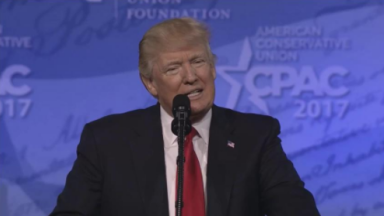
More than half of evangelical Christian Americans believe Donald Trump's claim that journalists 'make up' quotes in their articles, according to a poll.
A Morning Consult/Politico survey conducted between March 2-6 shows that 54 per cent of evangelicals agreed that it is 'likely' that journalists 'make up' anonymous quotes.
Overall, 44 per cent of registered voters agreed, while 56 per cent disagreed or said they had no opinion on the question.
The number of voters who describe themselves as Christian who agreed with the claim was higher, at 49 per cent.
By party, 65 per cent of Republican voters and 24 percent of Democratic voters believe that journalists are creating fake news.
Meanwhile, only 32 per cent of Americans responded that they believed it was appropriate to use anonymous sources in stories about government business, with 50 per cent against the practice.
Some 41 per cent of self-described government employees said it was appropriate, with 37 per cent disagreeing.
President Trump made his claims during a speech to the Conservative Political Action Conference (CPAC) in February.
'They have no sources,' the new President said. 'They just make them up when there are none.'
Trump implied that the mainstream media have developed a culture of lying, and said his administration would take action to curtail the use of anonymous sources.
Since Trump's rise to power, social media have been rife with talk of 'fake news' with both Trump supporters and opponents claiming that the other side is purveying misleading information.
The President's press secretary, Sean Spicer, has banned a range of media outlets from attending White House 'huddle' briefings, including the BBC, The Guardian, Mail Online, CNN and The New York Times.
The poll, published on Wednesday, asked questions of 1,992 registered voters.










